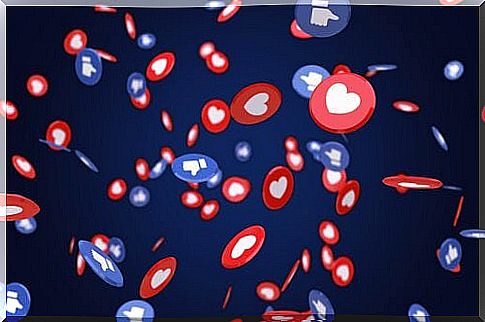Using Facebook Reduces Emotional Well-being

Social networks are one of the best inventions of recent years, there is no doubt. In less than a decade they have transformed the dynamics through which we relate to others and, in some way, also our habits of life. Almost without realizing it, we have included them in our daily routine. Although there are several, Facebook is undoubtedly the most used.
The project which aimed to create a small page to allow university students to get to know their classmates has become a fundamental element in the life of many people. And from a platform for contacting old friends to an indispensable tool for an increasing number of businesses. Facebook has come to stay.
However, not all that glitters is gold. A 2015 study, led by University of Copenhagen scientist Morten Tromholt and published in the journal Cyberpsychology, Behavior, and Social Networking , states that using Facebook to excess negatively affects our emotional health.
Despite this, Facebook continues to occupy a central role in our days. Should we therefore worry about how we use this social network or, on the contrary, is it just a false alarm? Science seems to indicate that we need to learn how to use it better. Let’s explore the topic below.
How does using Facebook reduce emotional well-being?
Excessive use of Facebook is related to higher levels of emotional distress. Below we tell you how it affects this aspect of our life.
1- It induces us to compare ourselves to others
People don’t use Facebook to upload unimportant photos that portray their daily days. On the contrary, this social network is a showcase of the most exciting experiences. Similar to a theater of happiness in which only what we believe is shown will be appreciated most by others and where the likes are the applause of success.

In this way, every time we open it, we see friends with backpackers around the world, people doing interesting activities, dream landscapes… while we sit at home and look enviously at the life of others.
Faced with this panorama, one of the most common behaviors is comparing ourselves to others. The problem is that this comparison is not realistic because we only see the best moments in the life of our “friends”. For this reason, if you feel that your life is not interesting enough when you are on your Facebook page, ask yourself if you may not be using it too much.
2- It makes us apathetic
One of the most studied phenomena in psychology is learned helplessness, or the feeling of inability that one feels when one wants to get out of a certain situation that produces discomfort and pain, but it seems impossible.
Some studies reveal that using Facebook reduces people’s emotional well-being because it shows them a great deal of horrible situations that they can’t change in any way. For example, news about disasters, crimes, very negative personal situations… as a result, on many occasions we experience a lack of motivation, interest and enthusiasm.
3- It saturates us with information
As if the previous two points weren’t troubling enough, a new variable has been analyzed in recent years : the effect that excess information has on the brain.

Our mind evolved in an environment where information was scarce. For this reason, our brains are not prepared to work with the vast amount of data we have access to in the modern world. For this reason, using Facebook reduces the emotional well-being of users because it bombards them with disconnected ideas that make them apathetic and drains their energy.
This excess of information can also cause an increase in the anxiety and stress levels of regular users of the social network. According to Behavioral Brain Research journal , continued use of Facebook can even shrink the brain’s gray matter.
In conclusion, using Facebook in an excessive way has consequences that we can avoid if we make a conscious and moderate use of it. If you notice that your attention has diminished or that you are invaded by malaise every time you log into your profiles, perhaps you should reduce the hours you spend on this social network.









